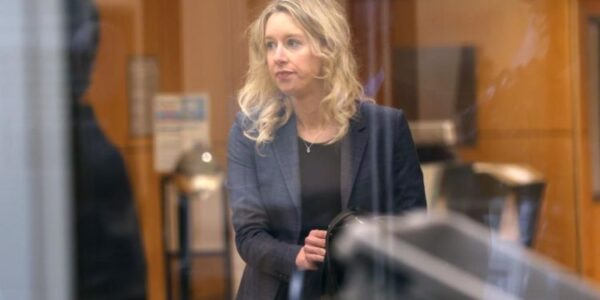
Elizabeth Holmes loses latest bid to avoid prison and gets hit with $452 million restitution bill
SAN FRANCISCO (NNewsy): Elizabeth Holmes appears headed towards prison after an appeals court denied her bid to remain free while fighting to overturn her conviction in a blood testing scam that brought her momentary fame and fortune.
U.S. District Judge Edward Davila issued another ruling late Tuesday ordering Holmes to pay $452 million in restitution to victims of her crimes, jointly liable with Ramesh “Sunny” Balwani who is already imprisoned after having been found guilty on numerous felonies in a separate trial.
Ninth Circuit Court of Appeals Judge Davila had ordered Holmes to surrender to authorities by April 27; she had also given her an 11-year sentence in November. However, Holmes used last-ditch legal maneuvers in an effort to postpone its commencement and postpone her surrender date until later this summer.
The punishment will result in Holmes and her current partner William “Billy” Evans being separated, along with their one-year-old son William and three month-old daughter Invicta. Holmes became pregnant shortly after being found guilty by a jury for four counts of fraud and conspiracy in January 2022, beginning her journey towards giving birth. Invicta means invincible or undefeated in Latin.
Davila recommended that Holmes serve her sentence at a women’s prison in Bryan, Texas; it hasn’t yet been disclosed whether the federal Bureau of Prisons accepted or rejected this suggestion and assigned Holmes elsewhere.
Balwani, 57, began serving an almost 13-year prison sentence after being found guilty on 12 counts of fraud and conspiracy last July. He was then locked up at a Southern California facility after losing an appeal attempt to stay free on bail until appealing his conviction.
This verdict against Holmes followed 46 days of trial testimony and other evidence, which provided insight into a culture of greed and hubris that pervaded Silicon Valley during this century of technology-related revolution.
At its climax, Holmes took to the witness stand in her own defense to give testimony in her own defense. This dramatic moment brought immediate intensity to the trial proceedings.
Holmes detailed how she founded Theranos as a teenager after dropping out of Stanford University in 2003, alleging Balwani of both emotional and sexual abuse. Furthermore, she stated her belief in Theranos’ revolutionary healthcare technology that could screen for hundreds of diseases with just a few drops of blood.
Holmes successfully amassed nearly $1 billion from an array of wealthy investors – such as Oracle co-founder Larry Ellison and media mogul Rupert Murdoch – to pursue her audacious ambition, yet all but two were dissuaded from participating after Wall Street Journal investigations revealed flaws in Theranos technology that cost them their investment funds.
Davila issued his ruling of restitution, in which Holmes and Balwani should pay Murdoch $125 million; by far the highest sum among investors listed in his order. As per Davila’s order, co-conspirators involved with Theranos scam must also repay $40 million to Walgreens after becoming investors after agreeing to provide some flawed blood tests at its pharmacies in 2013. Furthermore, Safeway should receive $14.5 million as it had initially agreed to join Theranos business partnership before withdrawing.
Lawyers representing Holmes and Balwani attempted to convince Davila in separate hearings that their clients should pay minimal penalties; prosecutors had requested a $800 million restitution penalty penalty; Holmes owned Theranos at its peak valuation, valued at nearly $4.5 billion at one point; Balwani owned some shares valued around $500 million at that point – both have stated they are close to bankrupt after incurring millions in legal bills while proclaiming their innocence.
Holmes’ lawyers have been fighting her conviction on grounds of mistakes and misconduct during her trial, including any errors or abuses that biased the jury in such an extreme way that Holmes should remain out of prison while her appeal takes place — an request which Davila and the Ninth Circuit Court of Appeals both refused.



